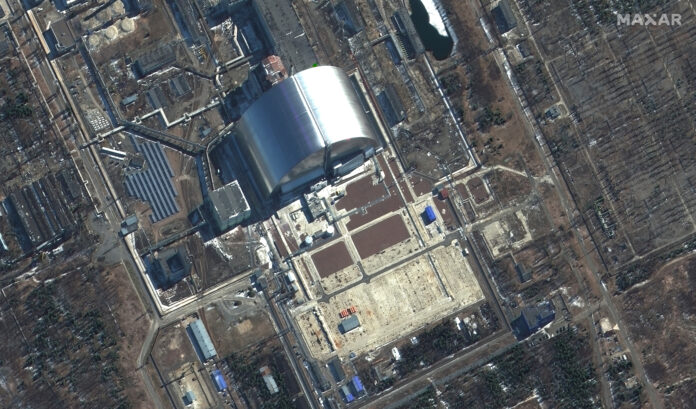Ukraine said on Friday its troops had repulsed a first attack by Russian troops closing in on the town of Slavutych, where workers at the defunct Chornobyl nuclear plant live.
Slavutych sits just outside the so-called exclusion zone around Chornobyl – the site of the world’s worst nuclear disaster – where Ukrainian staff have continued to work even after the territory was seized by Russian forces soon after the start of the Feb. 24 invasion.
Kyiv region administration said on Friday Russian troops had drawn closer to Slavutych, which is about 120 kilometres from the capital, and suggested it was effectively cut off.
“Slavutych is completely isolated. The enemy is 1.5 km from the town,” it said in an online statement.
Soon after the statement was issued, Ukrainian presidential adviser Oleksiy Arestovych said Ukrainian troops had repulsed a first attack on the town, without giving further details.
Trending Stories
300 Ukrainians killed in Russian airstrike on Mariupol theatre, say officials
Canadian soccer team’s bid for World Cup qualification put on hold in Costa Rica
Concerns rise about Ukraine’s Chornobyl, Zaporizhzhia nuclear power plants – Mar 9, 2022
The International Atomic Energy Agency (IAEA) expressed alarm on Thursday at reports from Ukraine that Russian troops were shelling Slavutych checkpoints.
It cited Ukraine’s regulatory authority as saying the shelling was endangering workers and preventing rotation of personnel to Chornobyl from Slavutych, which was purpose-built to house workers and their families after the radioactive fallout from the 1986 meltdown made the plant’s immediate surroundings uninhabitable.
The single shift of staff who happened to be on duty at Chornobyl when it was occupied by Russian troops was relieved only this week.
Moscow calls its actions in Ukraine a “special military operation” to disarm its neighbor. Kyiv and its Western allies call it an unprovoked war of aggression.
(Reporting by Pavel Polityuk and Natalia Zinets, Writing by Alessandra Prentice, Editing by Timothy Heritage)
© 2022 Reuters



